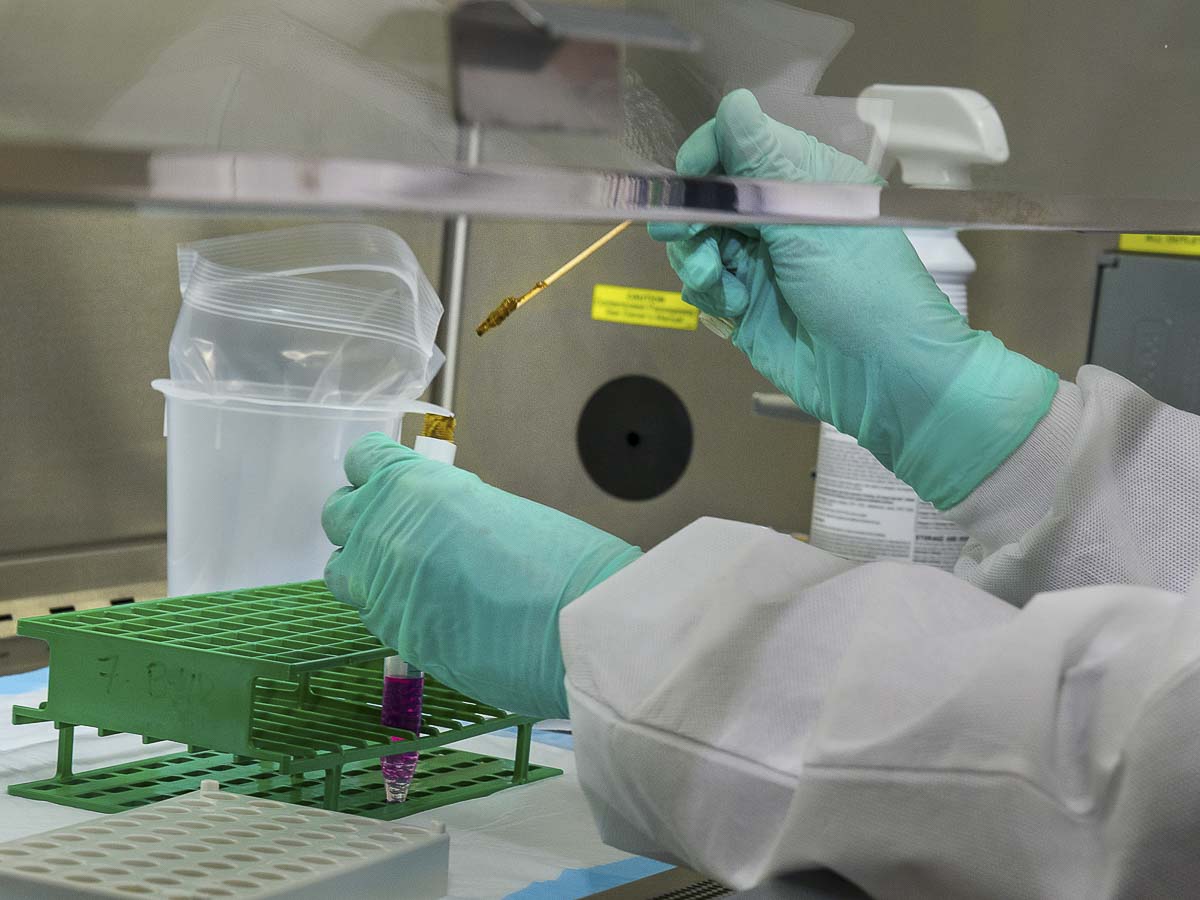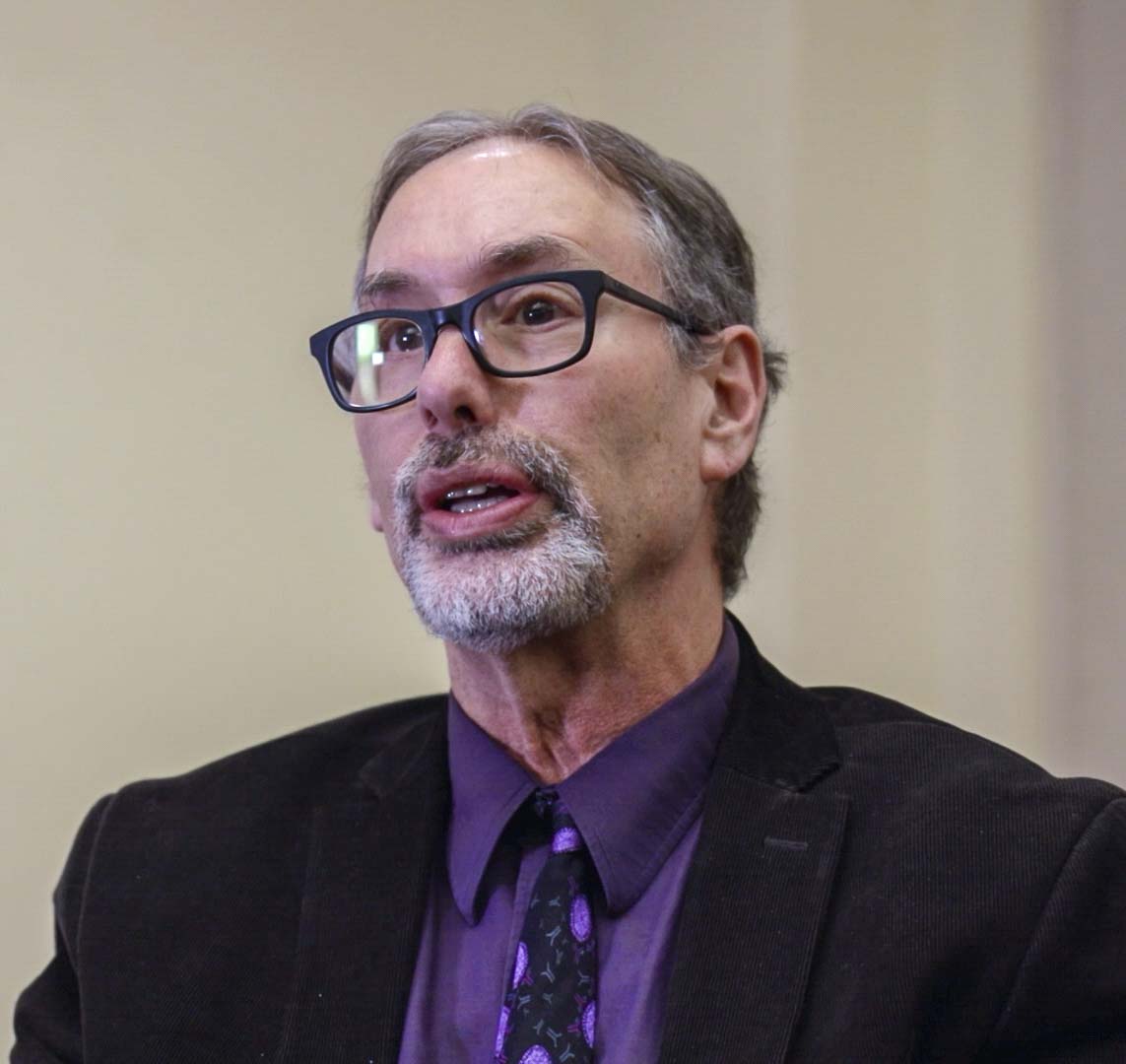Clark County has seen limited testing availability since the outbreak began
CLARK COUNTY — For some, the experience has been an uncomfortable distraction. Lethargy, a little difficulty breathing, or the odd loss of taste and smell.
For others, like Christina Pile, it has been an excruciating few weeks that left them worried their life was on a razor’s edge.

“I would much rather have given birth to all three of my children simultaneously,” Pile told Clark County Today. “It was much easier to give birth than it was to go through this. Much, much, much, much easier.”
Pile says she first experienced symptoms of a headache and scratchy throat on March 15, while visiting her son and daughter-in-law in Canada. She drove home the next day, and on the following Tuesday woke up with a fever.
What followed, she says, were the worst three weeks of her life.
“I lived on Tylenol. Literally every four hours,” Pile says.
During the height of the sickness the excruciating pain in her joints made it impossible to sleep. For three days and nights Pile spent every night pacing the floor. Unable to sleep, unable to focus enough to read a book or watch TV, just waiting for the night to end.
“I hated the nights,” she says. Even now, as she continues to recover and can sleep once again, Pile says the onset of night stresses her out.
Unlike with many people, Pile says she didn’t experience significant difficulties with breathing. But she did have another scary symptom.
“One morning, it might have been after the three days of extreme pain, but that was the morning I sat across from my husband and thought, ‘I think my heart’s gonna stop,’” Pile says. “Almost like it wasn’t beating right.”
More recent research has shown that the lungs may not be the only organ SARS-CoV-2 attacks. An increasing number of people have also experienced heart problems believed to be related to the virus.
Pile believes she and another friend were exposed to the virus during the 2020 Washington Horse Expo at the Clark County Event Center on March 6-8. Both became ill one day apart, though her friend’s case was much less severe.
Her friend, who lives in Olympia, was able to get tested and came back positive for COVID-19.
Pile, on the other hand, spoke with her doctor who recommended she get tested, then called back a short time later saying she was unable to get permission to have Pile go in, due to a shortage of supplies.
“And she said, you know, ‘I’m sorry,’” Pile recalls. “‘All I can do is tell you to stay home and take Tylenol. Call me if your fever exceeds 103 or if you can’t breathe.’”
Pile, who is 55, says her husband also has been sick, but experienced a milder form of the infection. Her son and daughter-in-law also became ill but have since recovered. Their one-year-old son has shown no symptoms.
While stuck at home recovering, Pile says she has grown increasingly frustrated at what she’s seeing online, with stories about crowded stores and parks.
“People are not taking it seriously. You know, people are letting their kids out in the park and playing together,” she says. “I don’t even know what to say to you guys.”
Others, like Ray Croon, have experienced less dramatic bouts with the virus.
“It just came out of nowhere,” Croon says. “I had the tiredness, and then it really started like a heaviness in my chest, coughing a lot.”
Croon, who works at a car dealership in Oregon, says his doctor told him it was likely an upper respiratory infection, and to stay home. His wife has also had to quarantine and stay home from her job.
Had testing been available, Croon says he might have been able to avoid being furloughed from work and needing to file for unemployment.
“You know, at the end of the day if I get the test and it comes back positive, I still stay home and do the same things I’ve been doing,” says Croon. “But just that peace of mind. Does my family need to be a little more concerned because I’ve been around them.”
Vancouver City Councilor Ty Stober and his husband recently finished a 14-day self quarantine after dealing with a persistent cough and other symptoms similar to COVID-19.
Stober also hasn’t gotten tested, but stayed home out of an abundance of caution.
“The amount of testing that’s occurred in Clark County is non-existent compared to the amount of people we have,” Stober said during a city council meeting earlier this week, in which all the council members joined via telephone. “We really don’t know the extent of the virus’ spread in our community.”
Pile says testing likely would have done nothing to change her outlook on the virus, but could be helpful in understanding exactly how prevalent it really is in the community.
“The numbers are all wrong,” she says. “Every time I saw the numbers it’s, ‘oh, there’s no cases.’ You’re full of malarkey. Yes, there are cases, you just won’t test. Either you can’t test, or you won’t test, I don’t know which.”
The subject is a sore one for Dr. Alan Melnick, Clark County’s public health officer.

“My two favorite topics are testing and personal protective equipment,” Melnick jokes. “When I say favorite, I mean frustrating for the last couple of months.”
Even as private labs across the state have ramped up bandwidth to run tests, the actual supplies required to gather samples have remained frustratingly difficult to obtain.
Washington Public Health Officer Dr. Kathy Lofy said earlier this week the state had obtained “tens of thousands” of testing kits, though few details were available yet on when they would arrive, and which areas would receive them.
Even as testing capacity slowly ramps up, most people are unlikely to find that they can suddenly drive up to a nearby hospital or clinic and get swabbed.
As of this week, both Legacy Health and The Vancouver Clinic have announced expanded testing capacity. For the most part, however, that is being used to test first responders who may have been exposed or are having symptoms.
Melnick says he’s also hopeful that testing can begin on a more widespread basis in adult care facilities and retirement homes.
After that, Melnick would ramp up testing for populations who live in congregate settings, such as prison inmates and people experiencing homelessness.
“When I have to think about things that keep me up at night in populations I’m concerned about, you know, given the availability of testing and the populations I want to test, that’s a fairly good summary,” Melnick says.
While health officials have been quick to say testing isn’t necessary if you simply think you have COVID-19, but you’re not at high risk or in need of hospital care, there’s a growing number of people who believe widespread testing could be key to getting businesses back up and running.
Melnick doesn’t disagree with that, but he says they have to work within the limitations they currently have.
And there are other reasons why people may want to just wait it out at home.
“If you go in for testing, you could expose other people wherever you go,” Melnick says. “And the other issue is you yourself could get exposed to it, if what you had wasn’t COVID-19. So that’s why I’m prioritizing the way I am.”
There are some signs that testing capacity is ramping up.
In a release on Thursday, Legacy Health Systems said they now have the capacity to test up to 650 people per day, and are opening drive-through testing centers in Portland and Woodburn. People will still need to obtain approval for testing via a virtual visit with their doctor, and need to fit within current CDC guidelines for testing. Those test results can come back in 1-2 days.
Legacy-GoHealth Urgent Care locations in Portland and Vancouver will also be able to now administer a test that can provide results in as little as 15 minutes. Patients are asked to first book a virtual visit with a Legacy-GoHealth Urgent Care provider at gohealthuc.com/northwest/virtualvisit to see if they qualify.




